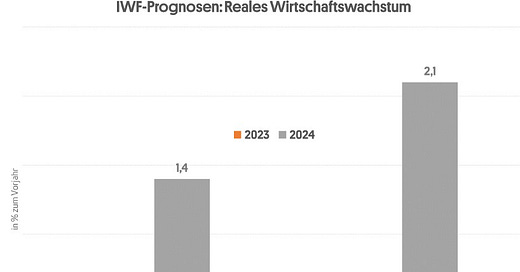How effective are the economic sanctions on Russia now?
The Financial Times just published an analysis of the economic sanctions on Russia that confirms once again that the effects of the sanctions have not had any visible effect on the Russian commitment to their war in Ukraine.
“Economic sanctions” sound like a milder alternative to war. Because for one thing, they are (in most cases). But in the current war, where Russia’s leadership sees its military effort in Ukraine as vital to their national interests - whether or not that’s a realistic assessment on their part - economic sanctions are not nearly enough to make them stop right away, even when coupled with massive military aid to Ukraine.
As Sergey Vakulenko reports:
The gas war did cost Europe hundreds of billions of euros in increased gas bills. Some European industries, such as fertiliser manufacturing, struggled and shut down, but the combination of a mild winter and suppressed Chinese demand restored the balance on the global gas market, while the European economy proved highly adaptable.
On the other side, there was a belief that Russia was heavily dependent on western technologies to keep its oil and gas flowing, western markets for its revenues and western financial systems to facilitate its energy exports. lt was hoped that, if cut off from these, Russia would face rapid economic collapse that would limit its ability to wage war.1 [my emphasis]
But the sanctions have not had the devastating effect on the Russia economy the West officially hoped. Nor has the West suffered the severe energy-shortage problems for which Russia hoped and the Western governments feared might occur. This is in no small part thanks to that “mild winter” in Europe.
Demand for fossil fuel products from China has surged, which has helped the petrostate Russia avoid the worst effects on their critical oil and gas sales.
Vakulenko also notes something that Western advocates of sanctions would prefer not to talk about too much at the moment:
Russia still has some pipeline gas going to Europe and Turkey. lt may consider cutting Europe off completely, but the cost [to Russia] would be high. Moscow would lose its last remaining allies, such as Serbia and Hungary, along with an important trade channel via Turkey. [my emphasis]
The third-to-last paragraph is a reminder that some of the most interesting information in a news article may be buried near the end:
Liquefied natural gas has not yet become a part of the energy war. So far, the monitoring of price cap mechanisms and re-exports of Russian crude and diesel through third countries appears to have been fairly relaxed. The goal of the EU and US was to keep Russian volumes in the market, so the message sent to market players was not to over-comply or create too much friction in operations. The noose may, however, now start to tighten, with some facilitators placed on sanctions lists, and shadow fleet tankers impounded. [my emphasis]
A reminder that us-vs.-them bombast from government officials is sometimes less that what it appears to be!
Vakulenko’s report also notes, “The west's arsenal is limited, and most of the tools at its disposal have already been deployed against Iran and Venezuela.“ (my emphasis) The latter was entirely unnecessary. And so was the current iteration of the sanctions against Iran, which Trump restored because he decided to pull out of the landmark nuclear agreement (JCPOA) with which the Iranians were still complying.2 Doing stupid stuff in foreign policy also has its costs, even for the United States.
Paul Steinhardt reminds us that Germany’s Green Defense Minister Annalena Baerbock said the purpose of the sanctions were to “ruin Russia.”3 That goal is still far away. At minimum, it is certainly not clear at this point whether Russia is hurt more than the West by the sanctions. Steinhardt makes some comparisons between economic indicators in Germany and Russia, including this graph based on the International Monetary Fund’s estimates for growth rates in Germany and Russia, which doesn’t paint an obvious picture of Russia’s economy being crippled in comparison to Germany’s:
In any case, Russia’s ability to finance a long war is not seriously in question. How bad other effects of sanctions may be for the economy and for ordinary citizens is another question.
None of this is to say that sanctions in this case make no sense at all. But being realistic about the actual effects is always important.
Vakulenko, Sergey (2023): Russia’s energy conflict with Europe is turning attritional. Financial Times 03/09/2023. <https://www.ft.com/content/cde8696f-3c48-4f40-8599-79626b903591> (Accessed: 2023-12-03).
“Iran was complying with the JCPOA until the administration of former President Donald Trump unilaterally withdrew from the agreement in 2018 and reimposed and widened U.S. sanctions on Iran.“ Kimball, Daryl (2022): The Logic of Restoring Compliance with the 2015 Iran Nuclear Deal. Arms Control Association Issue Briefs 14:2 02/16/2022. <https://www.armscontrol.org/issue-briefs/2022-02/logic-restoring-compliance-2015-iran-nuclear-deal> (Accessed: 2023-12-03).
Steinhardt, Paul (2023): Sieg im Wirtschaftskrieg? Makroskop 02.03.2023. <https://makroskop.eu/sieg-im-wirtschaftskrieg/> (Accessed: 2023-06-03).



